Blue eyes is still asleep when I climb out of his bed the next morning. Our clothes are scattered all over the floor where we shed them, my blouse and his shirt by the door, my pants midway across the room, my bra coiled up like a lacy pink cobra by the nightstand. I gather up my clothes and purse and tiptoe into the bathroom. It’s just the sort of bathroom a man would design, with stark black tiles and a chrome-and-glass shower. There’s no tub in sight; men just don’t seem to value a good long soak in a bathtub. I pee into the sleek Numi toilet and wash my face and brush my teeth at the white-onyx sink. I always carry a spare toothbrush in my purse, for just such impromptu sleepovers, although I can’t remember the last time I spent the whole night in a man’s bed. Usually I’m up and on my way before dawn. I must have been tired last night.
Or maybe it was the two bottles of Rioja we drank.
I see the aftermath in the mirror: my puffy eyes, my scarecrow hair. I wet my hair and smooth it down into a semblance of my usual black bob. As disheveled as I am, I also look sated and thoroughly content, something I haven’t felt in a long time. Thank you, Blue Eyes.
I open the medicine cabinet and survey the contents. Band-Aids, aspirin, SPF-30 sunscreen, and cough syrup. There are also two prescription pill bottles, which I take out for closer inspection. Vicodin and Valium, both prescribed for back pain. The bottles are two years old and each still contains about a dozen tablets, which tells me that he hasn’t been bothered by back pain recently.
He won’t notice if a few pills go missing.
I shake out four of each and slip them into my pocket. I’m no addict, but when the opportunity presents itself, why not avail myself of free pharmaceuticals that might come in useful someday? He’s obviously not in dire need of them. I replace the childproof caps and eye the name on the bottles. Everett J. Prescott . What a Brahmin-sounding name, surely someone who has a long and distinguished bloodline. Last night we never bothered to exchange full names. He has no idea what my last name is, which is for the best, since the chances are we’ll never see each other again.
I get dressed in the bathroom and tiptoe back into the bedroom to put on my shoes. He sleeps through it all, one bare arm flung across the sheets. For a moment I pause to admire his arm, with its lean and sculpted muscles. They aren’t the overly bulging biceps of a gym rat; these look like honest muscles built with real labor. Last night he told me he was a landscape architect, and I picture him building stone walls and hauling bales of peat, even though I doubt that’s what landscape architects actually do. A shame I’ll never get to find out.
It’s well past time for me to leave. I want to be long gone when he wakes up. This is the way I’ve always handled the morning after, because I’m no fan of awkward goodbyes and halfhearted promises of second dates. I usually break them anyway. This is the reason why I never bring men home to my own apartment. If they don’t know where I live, they can’t come knocking on my door.
But something about Everett makes me reconsider my love-’em-and-leave-’em strategy. It’s not just the fact he was an extremely attentive lover, who was so eager to please my every whim, or that he’s easy on the eyes and he laughs at all my jokes. No, there’s something more to him: a depth, a sincerity that I seldom encounter in other people.
Or maybe I’m just feeling that old oxytocin rush you get after a good and thorough fucking.
Outside on the street, I look back at the red-brick townhouse. It’s a handsome building and no doubt historic, in a neighborhood that I could never afford to live in. Everett must be doing very well indeed, and for a moment I reconsider my decision to walk away so precipitously. Maybe I should have lingered a little longer. Maybe I should have told him my phone number, or at least my last name.
Then I think of the downside. The invasion of my privacy. His inevitable expectations. The phone calls, ever more insistent, the clinging, the jealousy.
No, it’s better just to walk away.
But as I do, I commit his address to memory, so I’ll always know where to find him. Because you never know: A man like Everett Prescott might come in useful someday.
“How long did they work to resuscitate him?” said Maura as she cut through the ribs of Cassandra Coyle. Jane winced at the snap of the bone shears as Maura kept cutting, crack crack crack, like a carpenter in her workshop. The rib cage that had protected Cassandra’s heart and lungs was now just a bony palisade blocking their view of the secrets within, and Maura worked quickly and efficiently to clear away the barrier of ribs and breastplate.
“It took them about fifteen, twenty minutes,” said Jane. “But they got his heart beating again. I called the hospital this morning and he’s still alive. For now.”
Maura snapped another rib, and Jane saw Frost grimace at the sound of cracking bone. While the sights and smells of the morgue were familiar territory for Maura, this room would always be no-man’s-land to Frost, whose delicate stomach was legendary in the homicide unit. Cassandra Coyle was one of the fresher corpses they’d encountered, only a day old when she’d been discovered, but odors bloom quickly in a dead body at room temperature. Frost was getting enough of a whiff to make his face blanch, and he raised his arm to block the smell.
“Statistics show that you have about a forty percent chance of surviving a cardiac arrest in the hospital. A twenty percent chance of eventually leaving the hospital alive,” said Maura, matter-of-factly quoting statistics as she cut through the last few ribs. “Is he awake yet?”
“No. He’s still comatose.”
“Then I’m afraid his prognosis is poor. Even if Mr. Coyle does survive, he probably suffered anoxic brain damage.”
“Meaning he could be a vegetable.”
“Unfortunately, that’s a possible outcome.”
The ribs were now split, and Maura pried up the breastplate. Frost backed away as the stench of body fluids rose from the exposed cavity, but Maura simply leaned closer to peer at the thoracic organs.
“These lungs look edematous. Heavy with fluid.” Maura reached for a scalpel.
“And what does that tell us?” asked Frost, voice muffled.
“It’s a nonspecific finding. It could mean a number of things.” Maura glanced up and said to her assistant, “Yoshima, could you make sure the drug and tox screen is expedited?”
“Already done,” Yoshima said, always the calm voice of efficiency. “I ordered both an AxSYM and Toxi-Lab A, plus GC-MS for quantitation. That should cover pretty much every known drug.”
Rooting deep inside the thorax, Maura lifted out the dripping lungs. “These are definitely heavy. I see no obvious lesions, only a few petechiae. Again, a nonspecific finding.” She placed the severed heart on a tray and, with gloved fingers, traced the coronary arteries. “Interesting.”
“Aw, you say that to every corpse,” said Jane.
“Because every corpse tells a story, but this one isn’t revealing any secrets. The neck dissection and X-rays were normal. Her hyoid bone is intact. And look how clean her coronaries are, with no evidence of thrombosis or infarction. This was a perfectly healthy heart in what seems to be a perfectly healthy young woman.”
A woman who looked lean and fit and certainly capable of putting up a good fight, thought Jane. Yet Cassandra Coyle had no torn fingernails, no bruises on her hands, nothing to indicate she’d offered any resistance whatsoever against her attacker.
Maura moved on to the abdomen. Methodically, she excised liver and spleen, pancreas and intestines, but it was the stomach she was most interested in. She lifted it out as gingerly as if she were delivering a newborn and set it on the dissection tray. This was the part of the postmortem that Jane always quailed from. Whatever the victim had last eaten would now be two days old, a putrid stew of stomach acid and partly digested food. Both she and Frost retreated a few paces as Maura picked up the scalpel. Above his paper mask, Frost’s eyes narrowed in anticipation of the stench.
Читать дальше
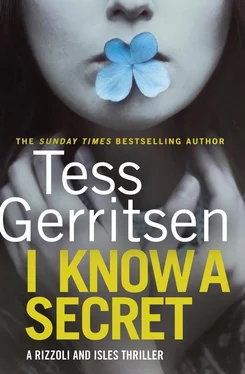
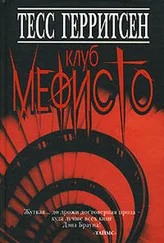
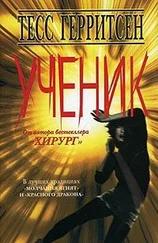

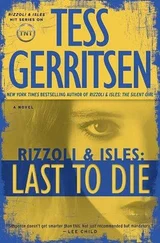
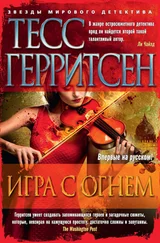
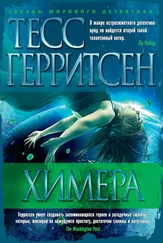
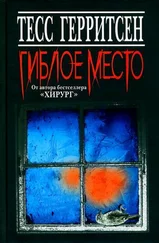

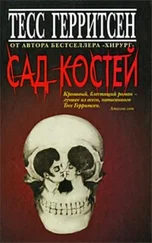

![Тесс Герритсен - Считать виновной [litres]](/books/395939/tess-gerritsen-schitat-vinovnoj-litres-thumb.webp)
![Тесс Герритсен - Двойник [litres]](/books/427680/tess-gerritsen-dvojnik-litres-thumb.webp)